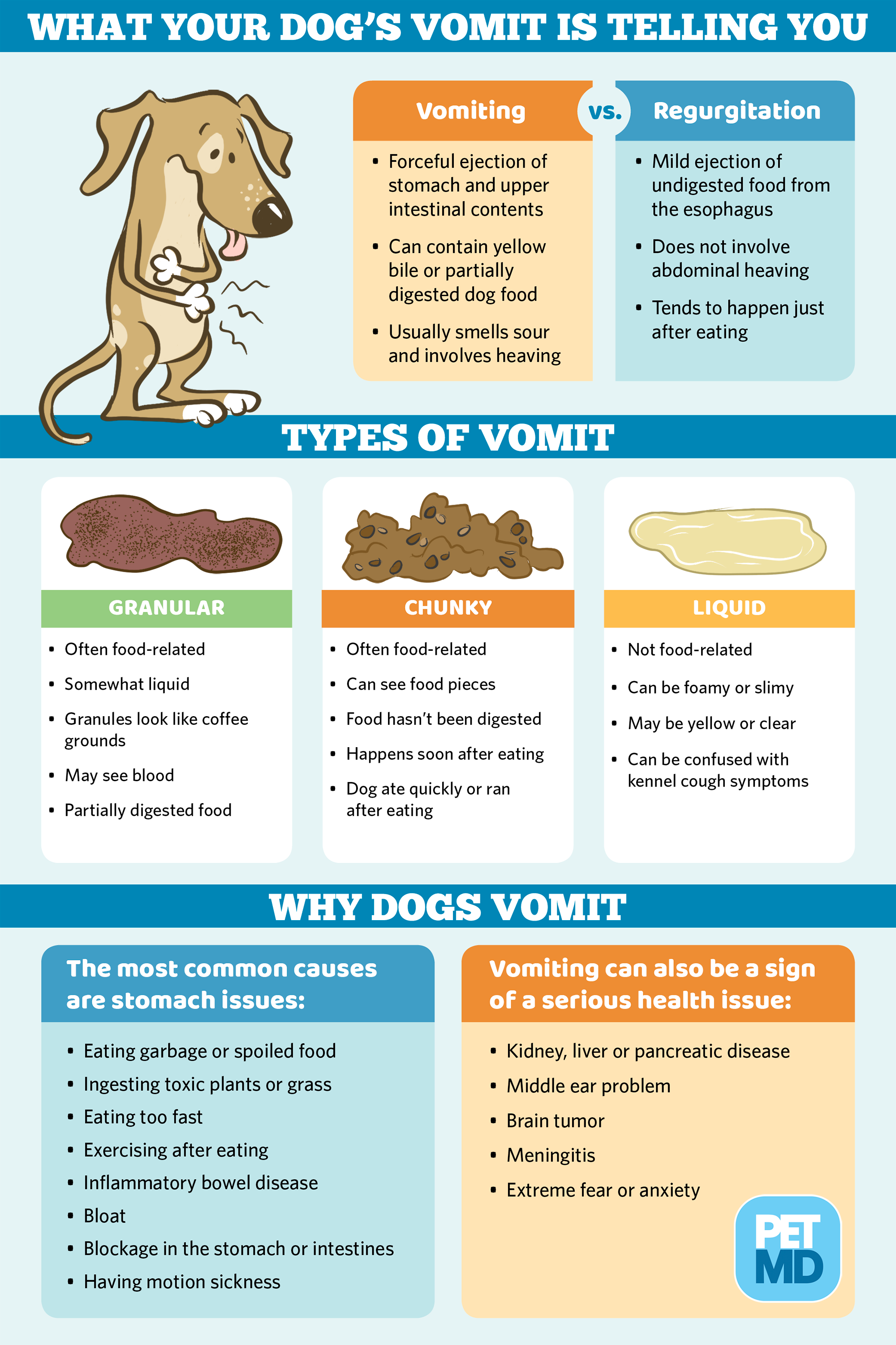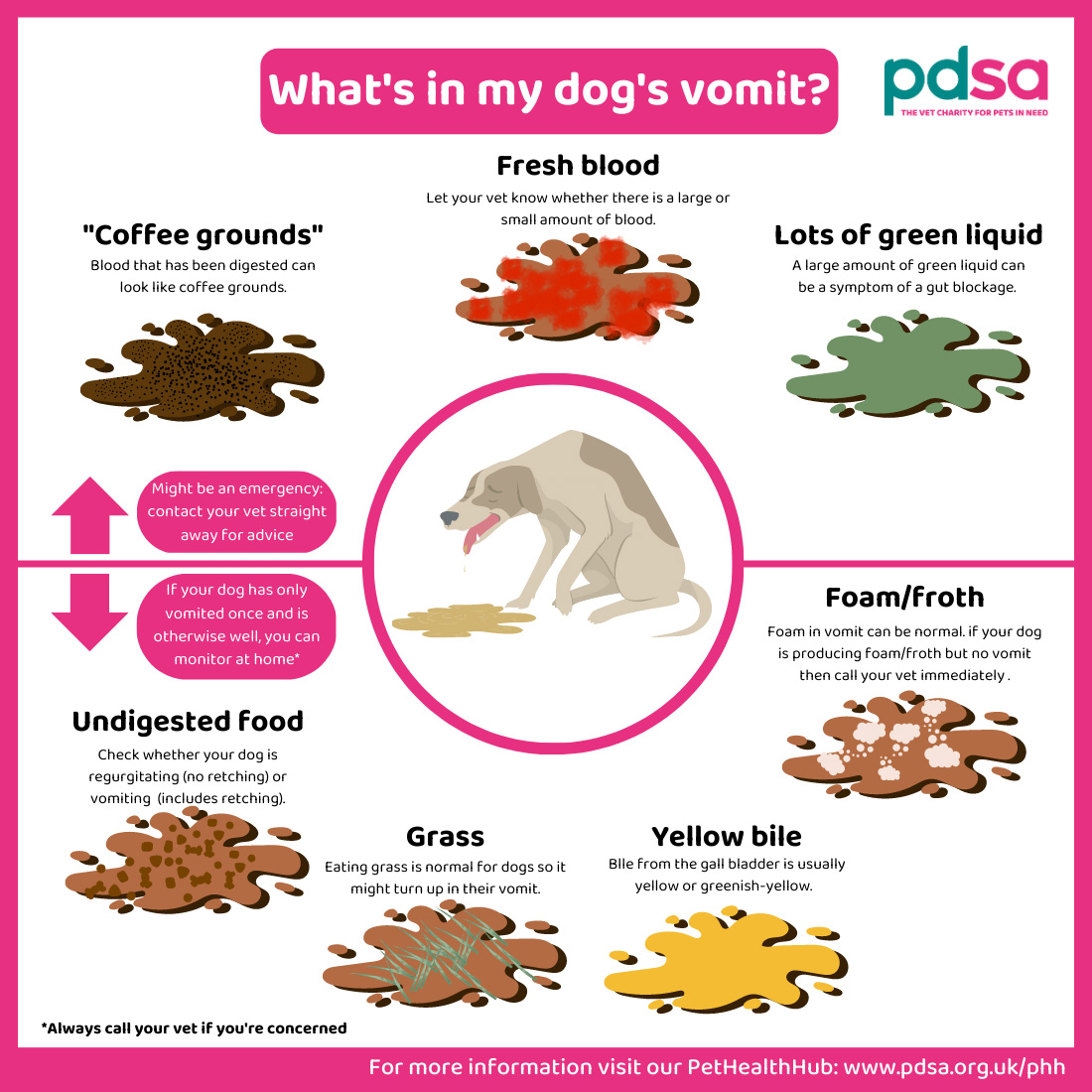Have you ever wondered why your chihuahua is suddenly throwing up? It may come as a surprise, but vomiting in dogs is not uncommon and can occur for a variety of reasons. Whether it’s due to a change in diet, a gastrointestinal issue, or an underlying medical condition, understanding the cause of your chihuahua’s vomiting can help you provide the necessary care and prevent further complications.
When it comes to chihuahuas throwing up, it is essential to consider both their history and potential solutions. Firstly, chihuahuas have sensitive stomachs, making them prone to vomiting, especially if there have been recent changes in their diet or the introduction of new foods. Additionally, certain gastrointestinal issues such as gastritis or gastroenteritis can lead to vomiting in chihuahuas. However, if your chihuahua is consistently throwing up or if the vomiting is accompanied by other symptoms such as diarrhea or lethargy, it is crucial to consult a veterinarian for a proper diagnosis and treatment plan tailored to your chihuahua’s specific needs.

Why is My Chihuahua Throwing Up?
Chihuahuas are adorable and popular companion dogs known for their small size and feisty personalities. However, as a chihuahua owner, it can be quite concerning when your furry friend starts throwing up. Vomiting in chihuahuas can be caused by a variety of reasons, ranging from minor issues to more serious health concerns. In this article, we will explore the common causes of vomiting in chihuahuas and provide helpful tips on how to address and prevent this issue.
Poor Diet or Food Allergies
One possible reason for your chihuahua’s vomiting may be related to their diet. Chihuahuas can be sensitive to certain foods, causing an upset stomach and vomiting. It’s crucial to provide your chihuahua with a balanced and high-quality diet that suits their specific nutritional needs. Avoid feeding them table scraps or foods that are known to be toxic to dogs, such as chocolate, onions, or grapes.
Food allergies can also trigger vomiting in chihuahuas. They may develop an intolerance to certain ingredients, such as beef, chicken, or grains. If you suspect that your chihuahua has a food allergy, consider switching them to a hypoallergenic dog food or consult with a veterinarian for further guidance. Keeping track of what your chihuahua eats and any subsequent vomiting episodes can help identify potential dietary triggers.
Additionally, it’s important to ensure that your chihuahua is not eating too quickly. Rapid consumption can lead to vomiting. Consider using slow-feeder bowls or puzzle toys to encourage your chihuahua to eat at a slower pace and prevent indigestion.
Gastrointestinal Issues
Chihuahuas are prone to gastrointestinal issues, which can contribute to vomiting. One common condition is gastritis, which is inflammation of the stomach lining. Gastritis can be caused by factors such as stress, dietary indiscretion, or bacterial infections. Symptoms may include vomiting, lack of appetite, and abdominal discomfort.
Another gastrointestinal issue that chihuahuas may experience is gastroenteritis. This condition refers to inflammation of the stomach and intestines and can be caused by viral or bacterial infections, dietary changes, or parasites. If your chihuahua is experiencing prolonged or recurrent vomiting, along with diarrhea and other signs of gastrointestinal distress, it’s important to consult with a veterinarian for a proper diagnosis and treatment.
In some cases, chihuahuas may suffer from gastrointestinal blockages, often as a result of ingesting foreign objects. If your chihuahua has swallowed something that is causing an obstruction, they may experience vomiting as their body’s way of trying to expel the object. This is a serious medical emergency that requires immediate veterinary attention.
Dental Issues and Oral Health
Chihuahuas are susceptible to dental problems due to their small mouths and crowded teeth. Dental issues, such as tooth decay or gum disease, can cause discomfort and lead to vomiting. If your chihuahua’s mouth is in poor condition, they may struggle to eat and chew their food properly, resulting in vomiting episodes.
Regular dental care for your chihuahua is essential to maintain their oral health. This includes daily tooth brushing with a dog-friendly toothpaste, routine dental check-ups, and providing appropriate dental chews or toys to help keep their teeth clean. If your chihuahua has severe dental issues, they may require professional dental cleaning under anesthesia.
It’s also worth noting that sometimes chihuahuas may vomit after excessive drooling, which can occur if they are anxious or stressed, have motion sickness during car rides, or experience excessive heat.
Infections and Parasites
Vomiting can be a sign of underlying infections or parasites in chihuahuas. Infections such as parvovirus, distemper, or gastrointestinal bacterial infections can cause vomiting, along with other symptoms like diarrhea, fever, and lethargy. It’s crucial to ensure that your chihuahua is up to date on their vaccinations to prevent these infectious diseases.
Parasites, such as worms or protozoa, can also lead to gastrointestinal issues, including vomiting. Regular deworming treatments and routine fecal examinations are important preventative measures to detect and eliminate parasites.
If your chihuahua is experiencing recurrent or persistent vomiting, it’s essential to visit a veterinarian for a comprehensive examination. The veterinarian will perform a physical examination, conduct diagnostic tests if necessary, and develop a treatment plan based on the underlying cause.
Preventing Vomiting in Chihuahuas
As a chihuahua owner, there are steps you can take to help prevent your furry friend from vomiting:
Key Takeaways: Why is My Chihuahua Throwing Up?
- Chihuahuas may vomit due to various reasons, such as dietary issues, illness, or stress.
- If your Chihuahua is vomiting frequently or experiencing other symptoms like diarrhea, it’s important to consult a veterinarian.
- A sudden change in diet or consuming something unusual can upset your Chihuahua’s stomach, leading to vomiting.
- Illnesses like gastrointestinal disorders, infections, or parasites can also cause vomiting in Chihuahuas.
- Stress and anxiety can contribute to vomiting in Chihuahuas, especially if they are prone to nervousness.
Frequently Asked Questions
Is your chihuahua experiencing frequent episodes of throwing up? Find out about possible reasons below.
1. What could be causing my chihuahua to throw up?
There are several reasons why your chihuahua might be throwing up. It could be due to a sensitive stomach, ingesting something toxic, food intolerance, or an underlying medical condition. If your chihuahua is throwing up consistently, it’s essential to consult a veterinarian.
Vomiting can be a result of gastrointestinal issues, such as gastritis or pancreatitis. Your chihuahua might also be experiencing an obstruction in the digestive tract, which can be serious. Identifying the cause of the vomiting is crucial for proper treatment and to ensure your chihuahua’s well-being.
2. How can I tell if my chihuahua’s vomiting is serious?
While occasional vomiting can occur in dogs, it is important to monitor the severity and frequency. If your chihuahua’s vomit contains blood, if they seem lethargic or dehydrated, or if the vomiting persists for more than 24 hours, it’s time to seek veterinary attention.
Other signs of a serious issue include a distended abdomen, severe pain, or difficulty breathing. Trust your instincts as a pet owner. If something feels off or if your chihuahua’s behavior has changed, it’s best to consult a veterinarian to rule out any serious conditions.
3. Can stress cause my chihuahua to vomit?
Yes, stress can certainly contribute to vomiting in chihuahuas. Just like humans, dogs can experience stress and anxiety, which can manifest in physical symptoms. Changes in routine, loud noises, new environments, or separation anxiety can all trigger stress-induced vomiting.
If you suspect that stress may be the cause of your chihuahua’s vomiting, it’s important to make their environment as calm and peaceful as possible. Provide a safe space for them with familiar items, such as their favorite toys or blankets. If the stress continues or worsens, consult a veterinarian for additional guidance.
4. What can I do to help prevent my chihuahua from throwing up?
To help prevent your chihuahua from throwing up, you can take a few steps. First, ensure that they are on a balanced and appropriate diet for their size, age, and specific dietary needs. Avoid giving them table scraps or foods that might cause gastrointestinal upset.
It’s also important to keep potentially toxic substances out of your chihuahua’s reach, such as human medications, cleaning products, and certain houseplants. Regular veterinary check-ups can help detect any underlying health issues before they escalate and lead to vomiting. Lastly, remember to provide a stress-free and nurturing environment for your chihuahua.
5. Should I be concerned if my chihuahua vomits occasionally?
Occasional vomiting can be normal for dogs, including chihuahuas. If it happens infrequently and your chihuahua is otherwise healthy and shows no other concerning symptoms, it may not be a major cause for concern.
However, it’s still a good idea to monitor the frequency, consistency, and any accompanying symptoms. If the occasional vomiting becomes more frequent or if your chihuahua’s behavior changes, it’s best to consult a veterinarian to ensure there is no underlying issue that needs to be addressed.

How To Care For A Dog Throwing Up? | Types Of Dog Vomit And What They Mean | Veterinarian Explains
To sum up, it is important to maintain a professional yet approachable tone when writing for a 13-year-old audience. The language used should be simple and free from jargon, ensuring clear communication. By constructing concise sentences that focus on a single idea and avoiding the phrase “In conclusion,” readers will gain a thorough understanding of the article’s key points without feeling overwhelmed.
In conclusion, when writing for young teenagers, it’s crucial to strike the right balance between professionalism and accessibility. By using a conversational tone, incorporating straightforward language, and avoiding jargon, the content will be more easily understood. Remember to keep sentences concise and to the point, allowing readers to grasp the main ideas without confusion.
